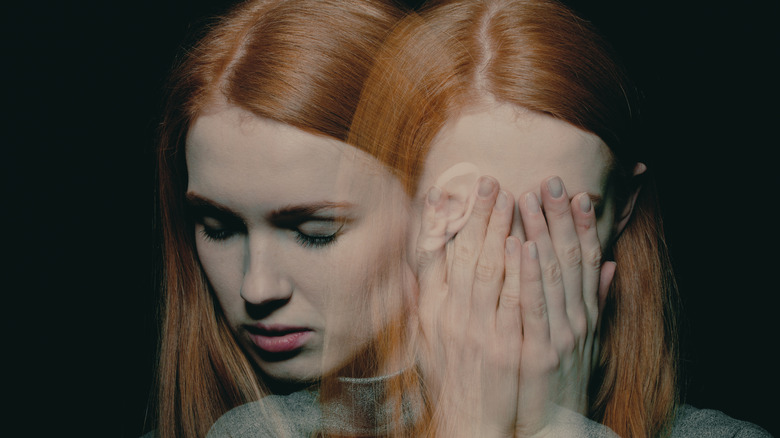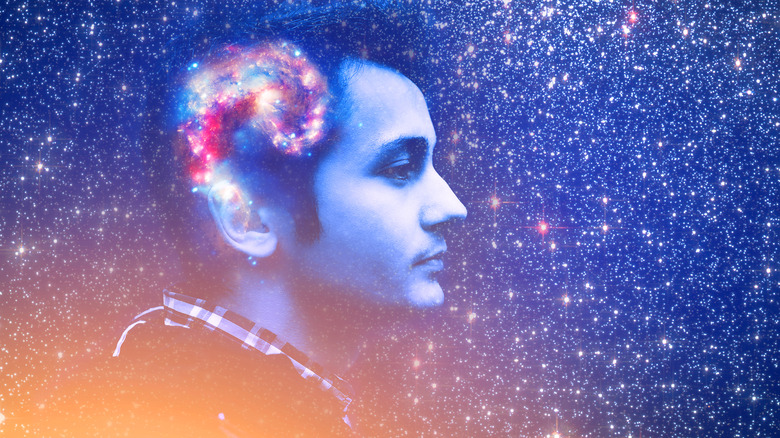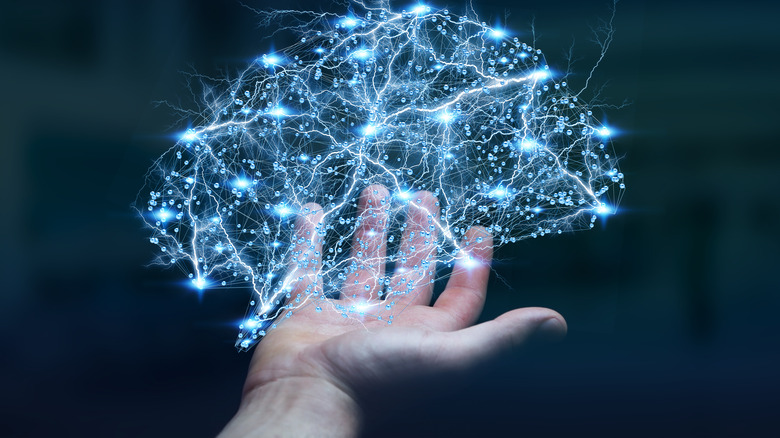What Happens To Your Brain When You Hallucinate?
Humans have five primary senses: touch, smell, sight, sound, and taste. Hallucinations can also take these five distinct forms (via Healthline). According to a scientific analysis published in the Journal of Psychiatry & Neuroscience, hallucinations are considered "perceptions in the absence of an external stimulus and are accompanied by a compelling sense of their reality." For example, one experiencing a visual hallucination may see a person standing before them, though the person is not truly there. Alternatively, an olfactory hallucination might have the person detecting a strong smell that is not actually present. During a hallucination, the experience seems quite real and visceral to the person experiencing it.
While often associated foremost with mental illness, research reveals that hallucinations can affect people of any age, including those who are not diagnosed with a mental health condition (via Journal of Psychiatry & Neuroscience). In fact, as outlined in their scientific analysis, researchers found that some studies have shown bouts of grief or self-generated sensory deprivation can also induce hallucinations. Certain physical health conditions can also cause hallucinations such as epilepsy, a high fever, migraines, brain cancer, or seizures, according to Healthline.
The link between dopamine and hallucinations
So if hallucinations can be induced by a number of emotional or physical stimuli, what exactly is happening in the brain when these experiences occur? The question of what causes hallucinations is still somewhat of a mystery to scientists. While bits and pieces of the equation have been unearthed throughout the years, the whole picture is still unclear.
In a 2018 study conducted by researchers at the Columbia University Irving Medical Center (CUIMC), researchers examined the relationship between hallucinations and the neurotransmitter dopamine, a brain chemical known to be elevated in people with hallucinations. It was found that after using a dopamine-releasing drug, those with hallucinations experienced more perceptual distortions.
Assistant professor of clinical psychiatry at CUIMC Dr. Guillermo Horga elaborated on these findings, stating, "All people have some perceptual distortions, but these results suggest that excess dopamine can exacerbate our distorted perceptions". This could lead to hallucinations, per ScienceDaily.
Our brain fills in the blanks during a hallucination
While dopamine may lend some insights into the relationship between the brain and hallucinations, a 2019 study published in Cell Reports took a different approach in their scientific exploration of hallucinations. Researchers provided mice with a hallucinogenic drug and observed their brain activity as the mice watched various images on a screen.
The researchers discovered that the hallucinogen actually diminished incoming visual information, which led to a decrease in brain activity in the regions responsible for vision (via Discover Magazine). Researchers concluded that when this occurs, the brain goes into overdrive trying to make sense of the incomplete information, and fills in the missing pieces.
Though further research is still needed, leader of the study Cristopher Niell breaks down the significance of their findings, stating via Discover Magazine, "Understanding what's happening in the world is a balance of taking in information and your interpretation of that information. If you're putting less weight on what's going on around you but then over-interpreting it, that could lead to hallucinations."


